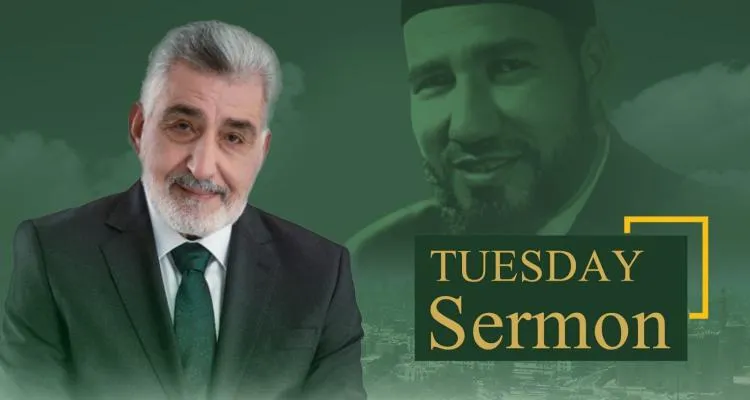

Imam Al-Banna & Resumption of Movement of Islam in Life
Despite its vast areas, its great wealth, its long-standing traditions, and its vivid idea that is a manifestation of religion for all people and an approach for life in general, our Muslim World was then in a servant-like position to others.
However, al-Banna surprised the Muslim World with his unique personality, as he confronted the erroneous thought and managed to correct it, and then presented it to his nation as a mature, revised thought, with the perfection that the nation aspires to, and the goodness that it is keen on.
He presented thought that accommodates all needs of the nation: starting from the pre-victory stage, including good preparation and solid formation, through the stage of victory, including opportunity seizure and accurate implementation; up to the post-victory stage, including success in achievement of goals, and overcoming all obstacles and difficulties encountered.
Al-Banna encountered a kind of religiosity confined to the place of worship only; so he sought to expand its scope and disseminate Islamic teachings among the public in general; so that religion would tackle all aspects of life, taking the concept of religiosity away from the practice of hermits whose bodies were emaciated because of asceticism and isolation in worship retreats.
He, may Allah have mercy on him, says: One day I conveyed my fears to prominent scholars and sought their advice and their help. However, I found two approaches that I had to choose from, so I ad
opted only one of them: where I had to choose between pursuing true Sufism, with respect to sincerity, action, seclusion and isolation from people on the one hand, and teaching and guidance, with respect to mingling with people and attending their gatherings. So I chose the second though I did not abandon the first altogether. That is because any work whose benefit is limited to its doer is inadequate. As for the work that benefits those who do it, as well as other people, then it is much more valuable, serious and dignified.
He faced a generation spoiled by manifestations of effeminacy, recklessness, and cowardice. So he helped them develop qualities of seriousness, and made them abandon worldly pleasures.
He faced a generation spoiled by the feeling of inferiority, and admiration of opponents, leading to imitating them in everything. So he worked to divert their attention to following the guidance of the Prophet in all their aspects. Accordingly, they became known in their societies for their special character, in terms of righteousness and strength, enduring hardship and getting used to tough conditions, in addition to the spirit of struggle and sacrifice for the sake of their thought.
He also faced a generation spoiled by the loss of confidence that Islam is valid for all times. So, he introduced to them the virtues of Islam that they had not known before, which made them go back to it after they had fled from it, due to acquiring better knowledge of their religion, and realizing that it is sufficient for them.
Al-Banna encountered a degraded society; with souls not fit to undertake serious work, so he actively sought to strengthen their bonds and boost their brotherhood through dissemination of ‘acquaintance and intimacy’ among them: as he used to say: "I want to discover the potentials of greatness in the souls of my people"; So he knew who of them was ripe to rely on in undertaking tasks, and who of them needed more time in getting ready for undertaking tasks.
He worked to consolidate their bonds also through ‘understanding and rapprochement’: as he used to say: “The path of advocacy starting from where we are up to access to the whole world requires the group that wants or attempts to do so, to declare readiness to fix its defects, and then to commit itself to doing its best, taking into account that coming generations may have much more ability.”
He also sought to boost their ties through ‘support and solidarity’, as he often used to say: "Sheer poverty makes spiritual advancement not easy! How can hungry people and those who do not find clothes to cover their bodies feel pride and dignity?"
After he had given his best before he died, he left behind a righteous nation, with straight and sincere tongue, (positively) affecting others, not being (negatively) influenced by others; directing people to the right path, not being driven by others; leading people to what benefits them, not allowing themselves to be led where others want.
And the close of our supplication will be: "Praise be to Allah, the Cherisher and Sustainer of the worlds!" May Allah's blessings and peace be upon our Prophet Mohamed, his kinsfolk and his companions.
Dr. Salah Abdel Haq

